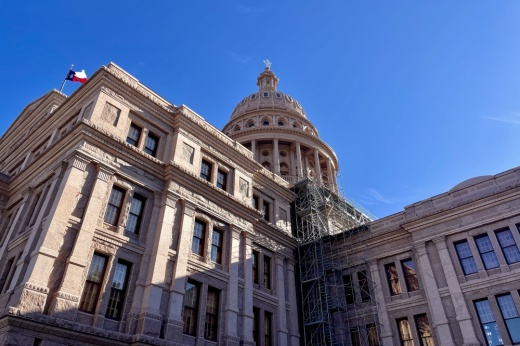The package aims to save Texans money on their property tax bills by increasing the state homestead exemption, cutting school district property tax rates and limiting how much businesses can be taxed for their personal property.
Sen. Paul Bettencourt, R-Houston, has led the Senate’s charge to lower property taxes this legislative session. He authored two of the bills in the package, alongside Sen. Tan Parker, R-Flower Mound.
The bills would provide “off-the-charts, incredible property tax relief for millions of Texans,” Bettencourt said.
The first component of the package, Senate Bill 3, would impact the state’s homestead exemption, which is a reduction in a portion of a home’s value for tax purposes. The bill would increase the portion of a home’s value that cannot be taxed from $40,000 to $70,000, which lawmakers have said would save the average homeowner $341 annually.
People with disabilities and those over the age of 65 receive an additional exemption of $10,000, which would be raised to $30,000.
“It’s important that we focus the money where people need it the most,” said Sen. Juan Hinojosa, D-McAllen.
All 31 members of the Texas Senate endorsed SB 3 as co-authors after Bettencourt filed the bill March 1.
SB 4, also by Bettencourt, would cut school property tax rates by $0.07 per $100 valuation. The state would provide school districts with at least $5.38 billion to make up for the lost revenue.
The bill is also meant to lower how much “property-rich” school districts pay in recapture. In an attempt to ensure schools receive equal funding throughout Texas, districts that bring in high property tax revenue are required to return that money to the state, which distributes it to “property-poor” districts.
Lawmakers have said the bill will allow property-rich districts to reduce their tax rates and, subsequently, their recapture payments.
Some Democratic senators expressed hesitation about SB 4, noting Texas may not always have the ability to fund school districts at that level. The state has a $32.7 billion surplus to spend for the 2024-25 biennium, thanks to high sales tax revenue, spikes in energy prices and federal coronavirus relief funds. But Sen. Nathan Johnson, D-Dallas, said he worried that without such a large surplus, lawmakers may have to increase other taxes to pay schools in the future.
Despite their concerns, all Democratic senators voted in favor of SB 4.
In a news release, Patrick said Bettencourt’s proposal “is responsible and does not trade Texas’ future for a better today.”
SB 5 was filed by Parker, a freshman senator. The bill is intended to save business owners money by increasing the business personal property tax exemption—or the portion of a business’ personal property that cannot be taxed—from $2,500 to $25,000.
Business owners would also receive a 20% credit for the taxes they pay on inventory and property.
Parker said the goal of SB 5 is to give money back to Texans because “it’s not our money; it’s the people’s money.”
Sen. Roland Gutierrez, D-San Antonio, said the bill would particularly benefit small businesses, which he said often face a large burden under Texas’ property tax laws.
The National Federation of Independent Businesses Texas lauded the Senate’s approval of SB 5.
“In the past three years, our local job creators have faced enormous challenges, and with our state’s $33 billion budget surplus, there’s no question they deserve meaningful tax relief this legislative session,” NFIB Texas Director Annie Spilman said in a news release. “This tax relief will allow small-business owners to invest in their employees, meet their customers’ needs and contribute to our communities.”
The bill package will now head to the Texas House. If House lawmakers approve the Senate’s package, the final decision would be up to Texas voters. Senate Joint Resolution 3, also by Bettencourt, creates a constitutional amendment that includes all the provisions in SBs 3, 4 and 5. The amendment would be added to all ballots for the general election in November.
“I believe the public will vote for this unprecedented river of property tax relief if given the opportunity,” Bettencourt said in a news release.
However, the House has taken its own approach to property tax relief. One of House Speaker Dade Phelan’s priority bills, House Bill 2, is meant to save the average homeowner approximately $400 on their annual property tax bill.
To do so, the bill would cut school property tax rates by $0.15 per $100 valuation and prevent property values from increasing by more than 5% each year. Residential properties are appraised each year, and value increases are capped at 10%.





